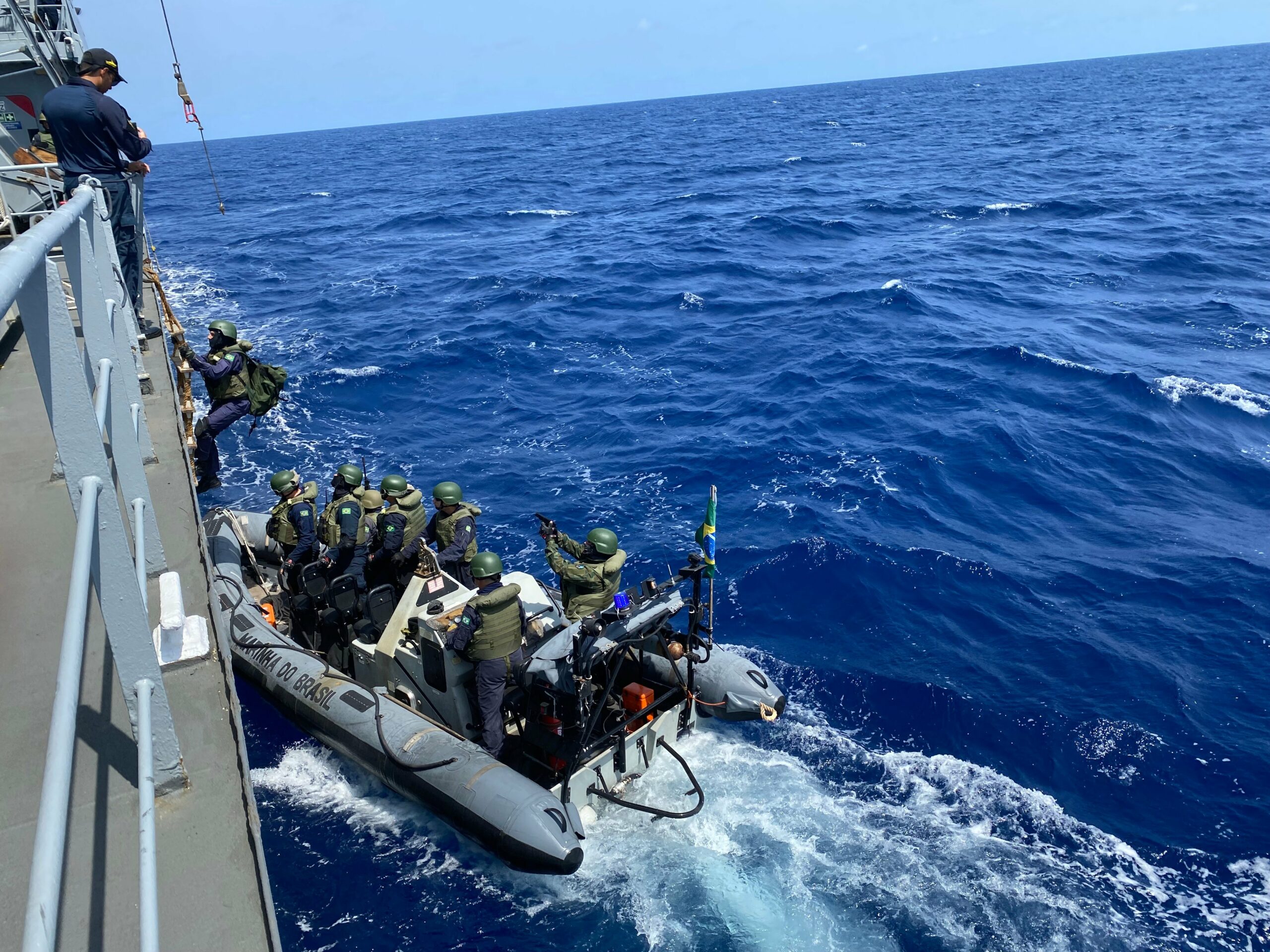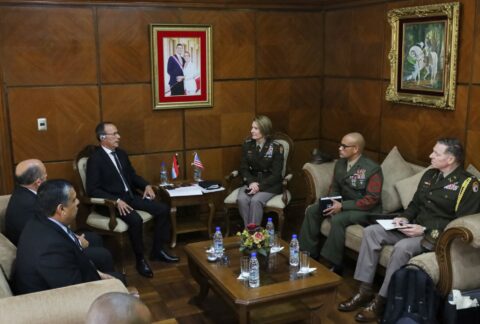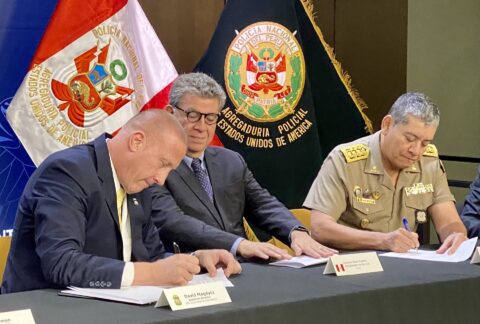The Brazilian Navy and 32 countries from the American, African, and European continents participated in the 12th iteration of Obangame Express, the largest multinational maritime exercise in West and Central Africa, conducted by U.S. Naval Forces in Africa (NAVAF), and sponsored by U.S. Africa Command. Nigeria hosted the January 23-February 3 exercise in its capital city of Lagos, which has the largest navy in the region and is key to security and stability in Africa, with various sea and ashore training events throughout the Gulf of Guinea and the South Atlantic Ocean.
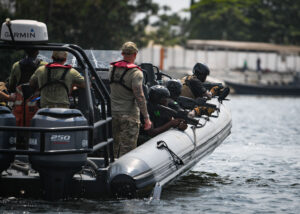
Obangame Express 2023 provided an opportunity to participating countries to coordinate actions against crimes such as piracy, drug trafficking, armed robbery, terrorism at sea, kidnapping, and illegal fishing in waters critical to Africa’s prosperity. The exercise also aimed to enhance regional cooperation, information sharing practices, and tactical knowledge among participating nations, as well as to promote social and foreign policy support actions.
The training included exchanges on boarding techniques, search and rescue operations, medical casualty response, radio communication, information management techniques, simulated approach to vessels involved in illicit activities, and training with weapons on fixed and mobile targets.
The Brazilian Navy, which participated with the Ocean Patrol Ship Araguari, under the leadership of Commander Marcio Jorge dos Santos, said in a statement that the exercise demonstrated, once again, the country’s decisive engagement with international peace and security and with maritime security in the South Atlantic. “Brazil consolidates its military and maritime security cooperation with Angola and the other countries in the region. Brazil also reaffirms its Atlantic vocation, its commitment to the South Atlantic Peace and Cooperation Zone (ZOPACAS) and to security in the Gulf of Guinea,” the statement said.
Obangame Express is one of three regional exercises facilitated by NAVAF, which provides collaborative opportunities for U.S. and African forces and international partners to address shared transnational maritime concerns, the U.S. Navy said in a statement.
“Exercise Obangame Express 23 provides an excellent opportunity to strengthen regional cooperation and share tactics, techniques, and procedures to deter transnational maritime security challenges,” said U.S. Navy Rear Admiral Chase Patrick, director of maritime headquarters, NAVAF, in a statement. “Together, we are creating a more secure, safe, and economically prosperous maritime environment for Africa’s coastal nations and the global community.”
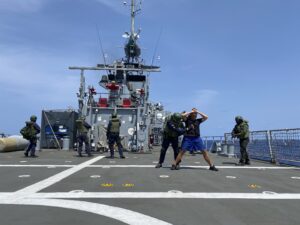
In addition to Brazil and the United States, Angola, Belgium, Benin, Cameroon, Canada, Cape Verde, Democratic Republic of Congo, Denmark, France, Gabon, Gambia, Germany, Ghana, Guinea-Bissau, Italy, Ivory Coast, Liberia, Namibia, Morocco, Nigeria, Poland, Portugal, São Tomé and Príncipe, Senegal, Sierra Leone, Togo, Spain, as well as the Economic Community of West African States and Economic Community of Central African States participated in the training.
The Gulf of Guinea, where the exercises took place, is a vast area that stretches from Senegal to Angola and covers some 6,000 kilometers of coastline, and is one of the world’s most critical maritime zones. Everything from oil and gas to goods from central and southern Africa flows through this region, along with some 1,500 fishing vessels, tankers, and freighters that navigate its waters daily. These waters are among West Africa’s most important economic assets, and therefore one of the most exploited by illicit actors.
“Illicit maritime activity threatens regional development efforts, weakens state security, and robs our African partners of the precious resources upon which they rely on for economic growth and effective governance,” said Admiral Stuart B. Munsch, commander of U.S. Naval Forces Europe-Africa. “Exercise Obangame Express is an important opportunity to improve our collective capabilities, build trust between our nations, and promote stability in a vitally important part of the world.”
São Tomé and Príncipe Defense Minister Jorge Amado said the exercise would serve to increase and boost cooperation between participating countries. “It will create greater communication between the countries and peace in the region,” he said.

